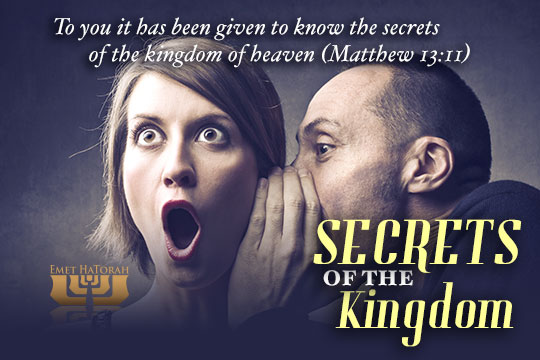Then the disciples came and said to him, “Why do you speak to them in parables?” And he answered them, “To you it has been given to know the secrets of the kingdom of heaven, but to them it has not been given. For to the one who has, more will be given, and he will have an abundance, but from the one who has not, even what he has will be taken away. This is why I speak to them in parables, because seeing they do not see, and hearing they do not hear, nor do they understand. (Matthew 13:10–13)
Featured Posts
|
|
In this mishnah we begin learning the primary teachings of Rabbi Yochanan’s star pupils. According to our mishnah, they each taught three primary lessons. We begin with Rabbi Eliezer. Let’s examine each of his teachings and see how they compare to that of our Master, Yeshua. |
In our last mishnah we began learning the primary teachings of Rabbi Yochanan’s star pupils, starting with Rabbi Eliezer. This time we will learn from Rabbi Joshua. Just as we did with Rabbi Eliezer's teachings, we will examine Rabbi Joshua's teachings and see how they compare to Yeshua's. Rabbi Joshua says that three things put a man out of the world: an evil eye, the evil inclination, and hatred of one’s fellowman. Things that “put a man out of the world” are essentially things that destroy a person and the world along with him. Our every action works toward either the repair or the destruction of the world. Let’s work to understand each of these forces of destruction listed by Rabbi Joshua. |
|
|
Do you really believe in your faith? Do you really believe in Messianic Judaism? Because if we truly believe in Messianic Judaism, then we would do just exactly as this mishnah directs us: we would study the Scriptures diligently to know it like we know the back of our hands. There are so many competing voices who claim to have the corner on truth. Messianic Judaism is just one voice in a sea of many. What makes it unique? What makes it authentic? Why does it give us hope? |
Pages
Welcome
Welcome to Emet HaTorah, where we connect disciples of Yeshua to the eternal Torah of God. We're blessed to have you here! We hope to be an online source for discipleship resources from a Messianic Jewish perspective. If you're new to Emet HaTorah have a look around and enjoy some of our online teaching resources and sign up for email updates. You'll be blessed!









